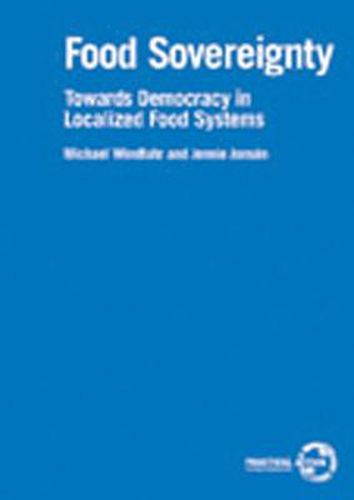Readings Newsletter
Become a Readings Member to make your shopping experience even easier.
Sign in or sign up for free!
You’re not far away from qualifying for FREE standard shipping within Australia
You’ve qualified for FREE standard shipping within Australia
The cart is loading…






This title is printed to order. This book may have been self-published. If so, we cannot guarantee the quality of the content. In the main most books will have gone through the editing process however some may not. We therefore suggest that you be aware of this before ordering this book. If in doubt check either the author or publisher’s details as we are unable to accept any returns unless they are faulty. Please contact us if you have any questions.
The current problems of hunger and malnutrition, as well as rural poverty, have become a priority challenge for international policy, and traditional approaches have failed to address the problems adequately. The latest FAO figures show the number of chronically hungry in developing countries has been increasing at a rate of almost 5 million per year - from 800 million to 852 million. The ‘food sovereignty framework’ focuses attention on the international organisations (World Trade Organisation, International Monetary Fund, World Bank, etc.) and the causes of hunger and malnutrition. It focuses on national policies that can be oriented towards reducing rural poverty and eliminating hunger and malnutrition. This ITDG Working Paper describes the development, basic assumptions and underlying analyses of the food sovereignty framework and how it relates to the current problems in rural and agricultural policies, and discusses possible policy constraints to its adoption. It concludes with an encouragement to take the approach seriously and an invitation to join the discussion on the further development of the food sovereignty framework.
$9.00 standard shipping within Australia
FREE standard shipping within Australia for orders over $100.00
Express & International shipping calculated at checkout
This title is printed to order. This book may have been self-published. If so, we cannot guarantee the quality of the content. In the main most books will have gone through the editing process however some may not. We therefore suggest that you be aware of this before ordering this book. If in doubt check either the author or publisher’s details as we are unable to accept any returns unless they are faulty. Please contact us if you have any questions.
The current problems of hunger and malnutrition, as well as rural poverty, have become a priority challenge for international policy, and traditional approaches have failed to address the problems adequately. The latest FAO figures show the number of chronically hungry in developing countries has been increasing at a rate of almost 5 million per year - from 800 million to 852 million. The ‘food sovereignty framework’ focuses attention on the international organisations (World Trade Organisation, International Monetary Fund, World Bank, etc.) and the causes of hunger and malnutrition. It focuses on national policies that can be oriented towards reducing rural poverty and eliminating hunger and malnutrition. This ITDG Working Paper describes the development, basic assumptions and underlying analyses of the food sovereignty framework and how it relates to the current problems in rural and agricultural policies, and discusses possible policy constraints to its adoption. It concludes with an encouragement to take the approach seriously and an invitation to join the discussion on the further development of the food sovereignty framework.